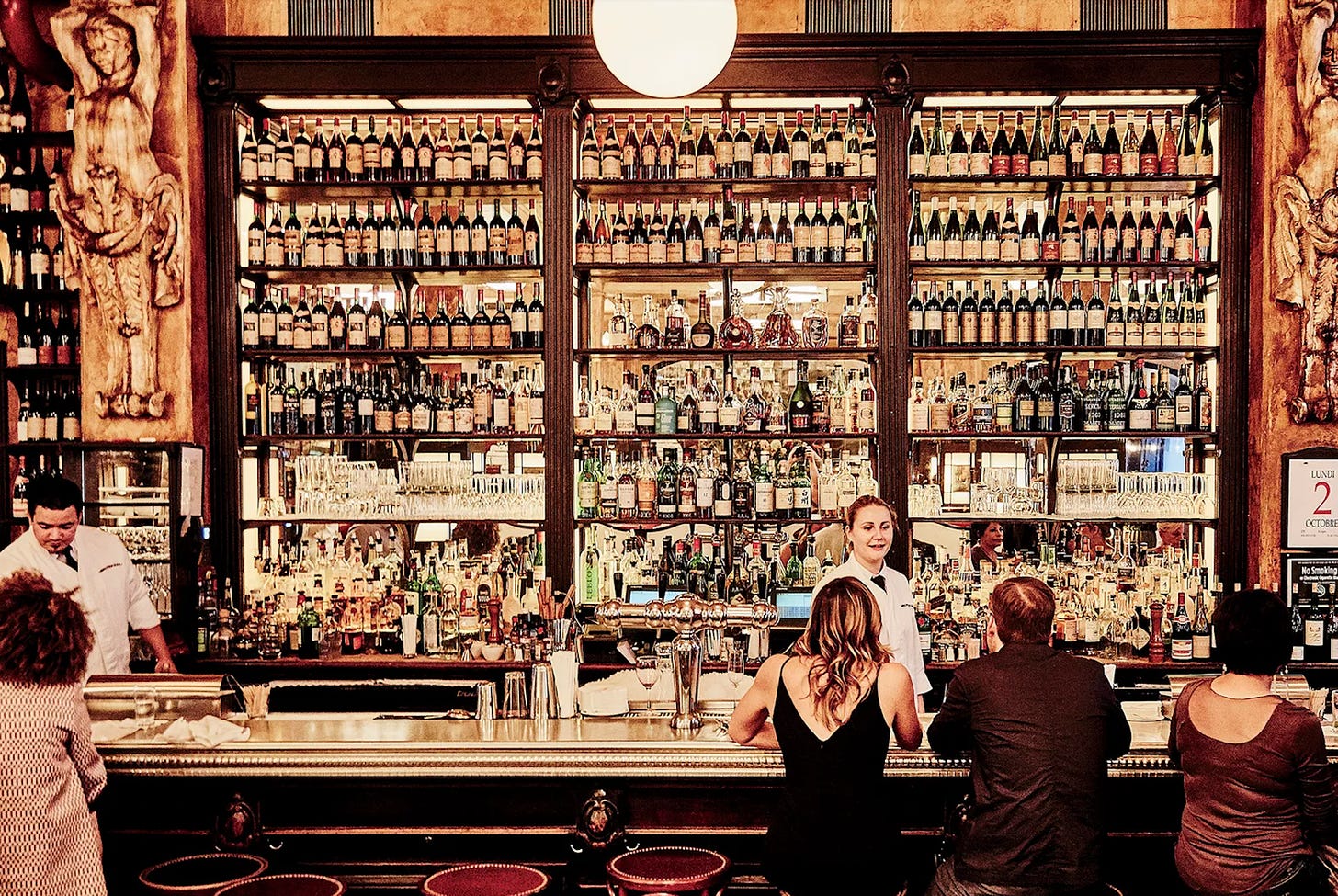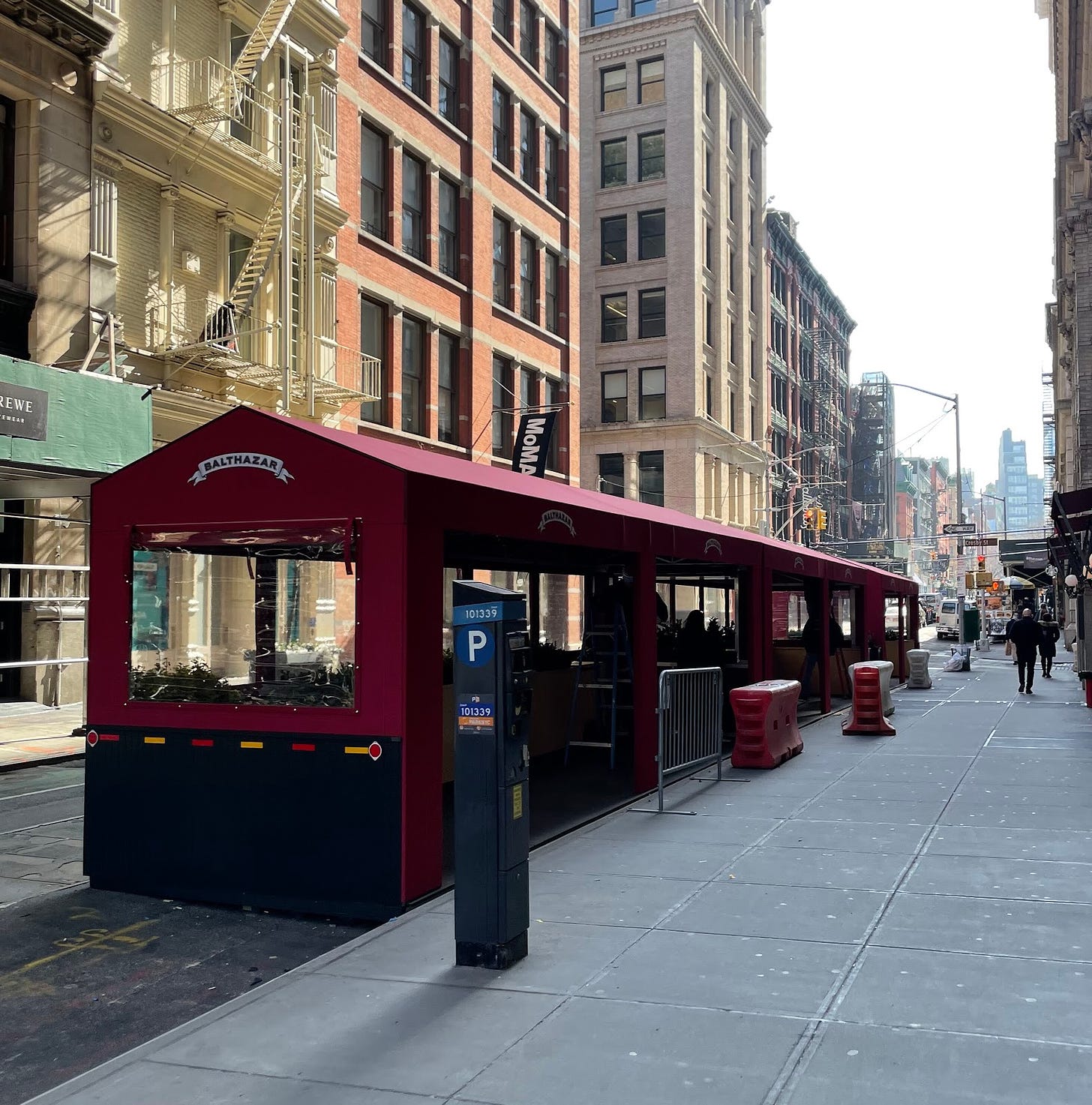Colin here. There’s a variety of things about the storied restaurant Balthazar that should piss me off. You walk into a scrum at the host stand, where at peak hours, it could be packed at best, confrontational at worst. Bad tables are many, where pre-Covid, with a bit of misfortune from the host you could find yourself cheek to jowl with a media exec at an adjacent table, and cornered to the left by a waiter station. If you’re rewarded with a good table, in the winter months, you might be able to stow your jacket and bag in some semi-useful storage area. The place is always rammed. And on the weekend, it is on the must-do of every tourist visiting New York. As someone that cares about layouts, customer experience, and flow, there’s enough to raise my hackles.
However, and you see where this is going, this is a restaurant that I dearly miss. Noah and I regularly had breakfast meetings there. At one point we had such rapport with Carrie, one of the lovely mid-2000s staff members there, that she would both give us a beautiful banquet and a fresh copy of the IHT or Guardian. It was a delightful gesture, as she was conferring a gentle A-list status based on our regular patronage rather than being boldfaced names like an editor in chief or industry titan. Our pal Paul Woolmington, who has been a regular at Balthazar since the beginning, has been on a first name basis with several incredible staff members doing the hard yards who have been there since the start. The morning sessions were always a nice dose of inspiration, a friendly nod to someone you may know, or a rushed introduction to someone you didn’t as they ate their applewood smoked bacon. Best of all at breakfast, you’re in and you’re out with Swiss efficiency.
Why is this interesting?
Despite its annoyances, and some bugs of the layout, the thing that stands out to me the most is how the staff make the magic. First off, they know what it means to do great breakfast service: make sure someone gets their coffee promptly, their eggs hot, and can be out in an hour. If this sounds easy, it’s not. In fact, it’s hard enough that Andy Grove, former CEO of Intel and one of the most-respected leaders in business history, opened his famous management book High Output Management with just this problem:
To understand the principles of production, imagine that you’re a waiter, which I was while I went to college, and that your task is to serve a breakfast consisting of a three-minute soft-boiled egg, buttered toast, and coffee. Your job is to prepare and deliver the three items simultaneously, each of them fresh and hot.
The rest of the book goes on to lay out management principles that nearly every company in tech still follows. The bottom line is that getting eggs, toast, and coffee out to a few hundred people every morning isn’t a task to be taken lightly. To make it happen without ever making patrons feel rushed or crowded by hovering waitstaff is Herculean.
As for ambiance, despite the crowds, the space still manages to feel cozy. Some of this comes down to the acoustics, which somehow manage to funnel all but the closest voices into a perfect murmur. With the lighting layered in, they pull off the bustling Parisian bistro feel without feeling like a theme park. And, after hundreds of meals there over 20 years in New York, I still feel slightly nervous heading inside to speak to the maître d', which is one of those strange intangibles that I love and speaks to the McNally magic. (CJN)
Photo of the day:
Quick Links:
Climate and Crypto (NRB)
More chip talk: Google Says The SOC Is The New Motherboard (NRB)
Thanks for reading,
Noah (NRB) & Colin (CJN)
—
Why is this interesting? is a daily email from Noah Brier & Colin Nagy (and friends!) about interesting things. If you’ve enjoyed this edition, please consider forwarding it to a friend. If you’re reading it for the first time, consider subscribing (it’s free!).




